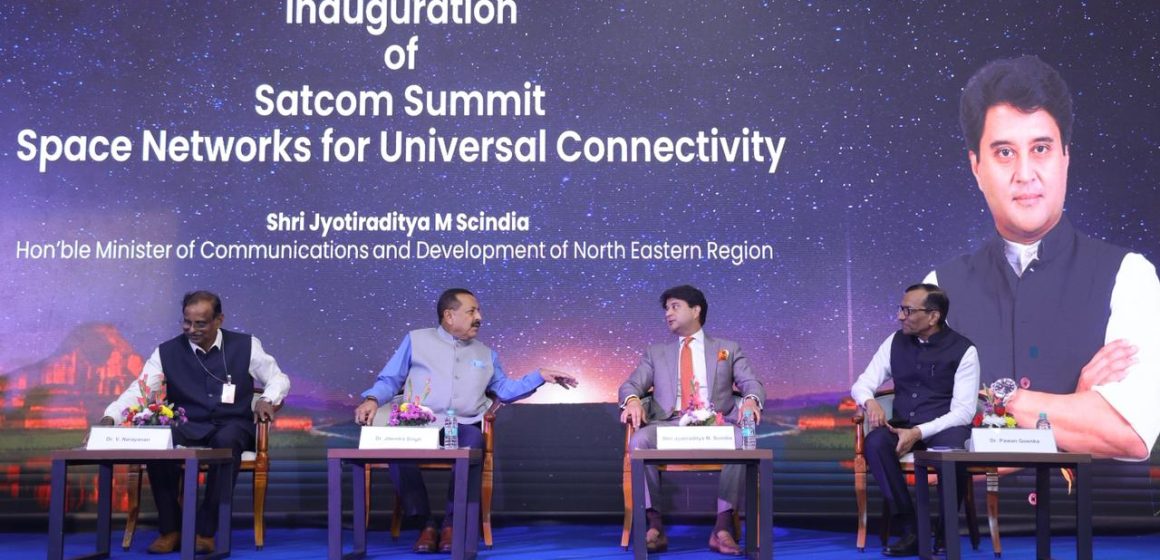As India’s satellite communication sector enters a transformative phase, its future success will hinge on delivering universal digital access, said top lawmakers, industry leaders and technologists at the inaugural SATCOM Summit on Wednesday.
With policy reforms, public-private partnerships and next-generation technologies propelling India’s satellite communication sector into a transformative phase, its future success lies in delivering universal digital access, said top lawmakers, industry leaders and technologists at the maiden edition of the SATCOM Summit on Wednesday.
Held as part of India Mobile Congress 2025, the summit, ‘Space Networks for Universal Connectivity’, was inaugurated by Jyotiraditya Scindia, Union Minister of Communications, with Dr. Jitendra Singh, Minister of State, Department of Space, Dr. V. Narayanan, Chairman, ISRO, and Dr. Pawan Goenka, Chairman, IN-SPACe, in attendance.
“Satcom means a doctor in every home and a teacher in the remotest classroom. It is a national necessity and the backbone of resilient infrastructure,” said Scindia, citing India’s leadership in missions like NISAR and its growing role as a global pace setter in spacetech.
Dr. Jitendra Singh highlighted the country’s expanding satcom ecosystem, built on international collaborations and domestic innovation. “Spacetech has profound implications for defence and atomic energy. Public–private partnerships are proving extremely effective,” he said.
ISRO Chairman Dr. V. Narayanan noted that India is now capable of placing over 100 satellites in a single launch. “To become a developed nation by 2047, we must build an extensive satellite network that ensures last-mile connectivity and industrial efficiency,” he said.
Lt Gen AK Bhatt (Retd), Director General, Indian Space Association (ISpA), called for strategic regulatory reforms. “Spectrum allocation delays are holding back progress. A flexible framework that supports innovation and reduces entry barriers is essential,” he said.
Private sector leaders echoed the call for inclusive growth. Starlink’s Parnil Urdhwareshe praised India’s proactive policy support for non-geostationary satellite orbit (NGSO) systems while Viasat India’s Gaurav Sharma emphasised the importance of multi-orbit strategies to meet low-latency demands in sectors such as defence, aviation and gaming.
The summit featured sessions on non-terrestrial networks, space-based internet, regulatory frameworks and integration with 5G and 6G systems. Experts explored how satellite technologies can build resilient, scalable and inclusive communication networks aligned with India’s digital empowerment goals.


